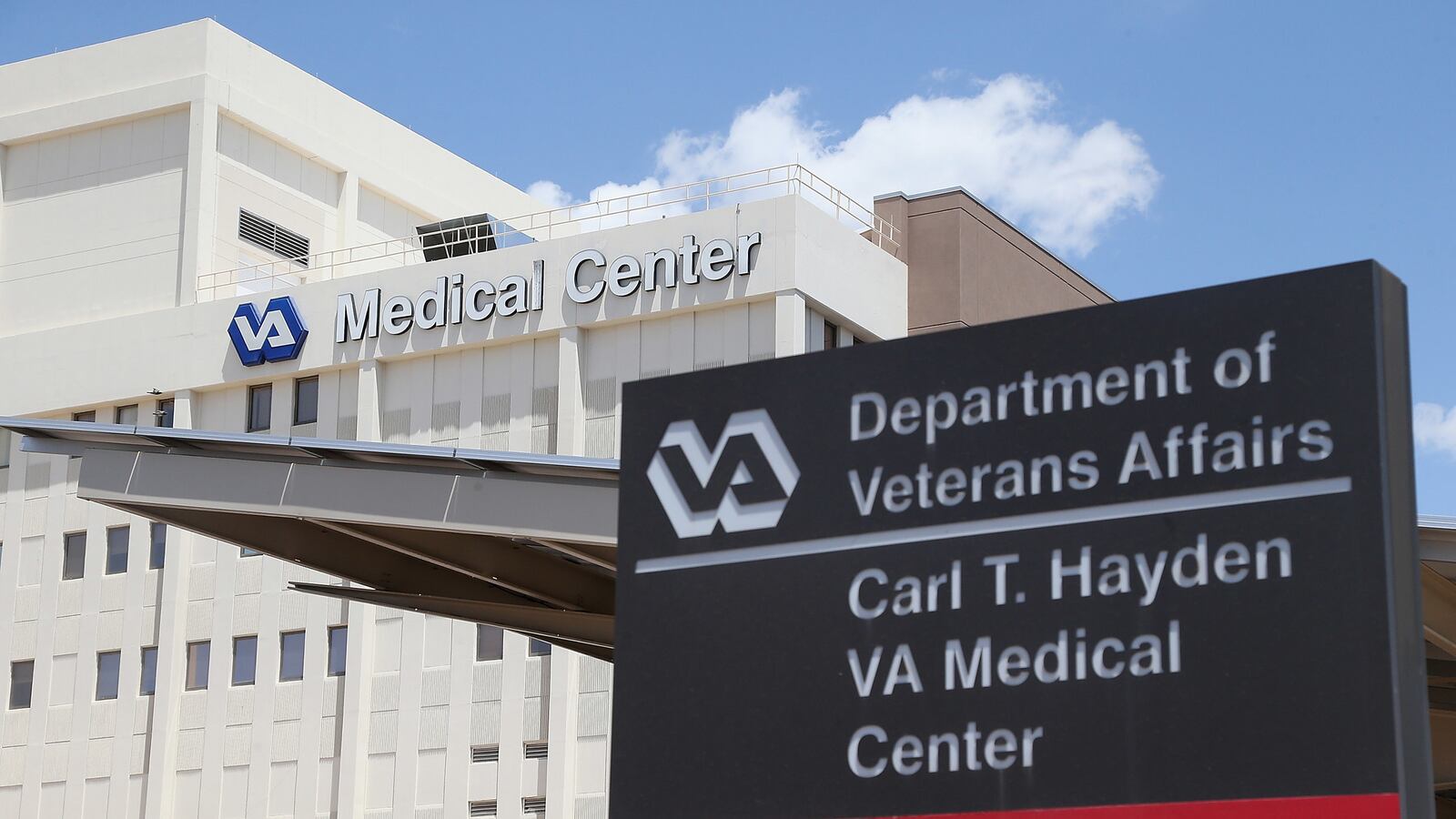It’s easy to cast blame for the VA crisis on leadership in Washington, D.C., yet many of those who led the call for Eric Shinseki’s resignation are the exact same people who will tell you that the solutions to the nation’s problems are not to be found in Washington. So I wonder—why are we settling for easy scapegoats here? And why are we expecting the Department of Veterans Affairs—a large, massive bureaucracy that has been plagued with problems since its inception—to somehow be able to fix itself?

Here’s the thing: the Veterans Health Administration is the largest program run by the Department of Veterans Affairs, but it’s not the only one; the VA also administers separate, large-scale offices for benefits and burial adminstrations. In addition to running those other programs, the VA operates the VHA as the nation’s largest integrated health system, encompassing 150 medical centers and 1,400 community-based outpatient clinics in all 50 states, plus Puerto Rico, the U.S. Virgin Islands, Guam, the Philippines, and American Samoa. Yet somehow we’re expecting Washington, D.C., to keep tabs on all of these facilities all by their lonesome, and we’re willing to hold the guy at the top entirely responsible for faraway locations that were essentially lying to administrators in D.C. Meanwhile, we have designated offices in our local and state governments that are tasked with ensuring the welfare of their veterans. The question is this: Why are we not asking why local and state veterans affairs offices didn’t know what was happening to the veterans they are directly responsible for? Why are local and state officials evading responsibility here?
Successfully reintegrating veterans after they have come home requires local solutions—Washington, D.C., will never understand the particular needs of a local veterans community as well as the people on the ground. It takes local leaders and advocates to identify gaps between the needs of those veterans and the benefits and services they’re able to access, and to make those gaps known. The consequences of a breakdown in local leadership were egregiously evident at the Phoenix VA, where serious problems were covered up by administrative fraud that went unchecked until exposed by the national media.
This Phoenix case is now well-known. But less discussed is the fact that the City of Phoenix has a Military Veterans Commission that meets at least quarterly to advise the Phoenix City Council on “all matters pertaining to the affairs of military veterans residing within the City of Phoenix.” So where were those guys? Were they checking in on conditions at the hospital and surveying local veterans? Did they know this was happening? Did they bring this up to the Phoenix City Council, or Phoenix’s Congressional delegation in D.C., or to VA administrators either locally or in D.C.? It is bad enough that administrators in Washington, D.C., didn’t know what was going on in Phoenix; it’s even worse that local officials charged with veterans’ affairs had no idea what’s happening to the veterans right in front of them. And if that wasn’t enough, the Arizona Department of Veterans’ Services is also based in Phoenix, less than a mile from the VA medical center. They allegedly go to work every day for veterans—yet apparently had no idea what was happening right down the street from them.
I am all for accountability—but as we demand accountability for VA officials, let’s not forget the many other public officials we pay to ensure veterans at the state and local levels can access their benefits. American government works because we have overlap between federal, state, and local governments. The job of government is vast, and there is no one-size-fits-all solution for communities, counties, states, and regions as diverse and divergent as those found across our nation. And for that reason, we also rely on partnerships between government, the private sector, and nonprofits to ensure the delivery of benefits and critical services like those related to veterans.
We must demand accountability at the local and state levels, and we must insist on open channels of communication to identify problems at the state and local levels and to raise those problems up to administrators and lawmakers in Washington. Why have we made it so easy for members of Congress to call for Shinseki’s resignation, meanwhile absolving themselves of any responsibility to know what’s happening to veterans in their own states and districts before it becomes a crisis in the national news?
The longer we wait for Washington to fix Washington’s problems, the longer we are failing to take responsibility for what is happening in our own communities. Government is never going to have all the answers, and neither is the private sector, nor the nonprofit sector. We all have to work together to ensure no veteran is left behind. But when we’re looking for accountability in government programs—let’s look at the whole of government.
If the veterans’ affairs offices in our state and local governments do not have their finger on the pulse of the quality and accessibility of care that veterans receive in our VA medical centers—then we should be asking why that is. Local solutions, America. That’s what we’re good at. So let’s get on it.





